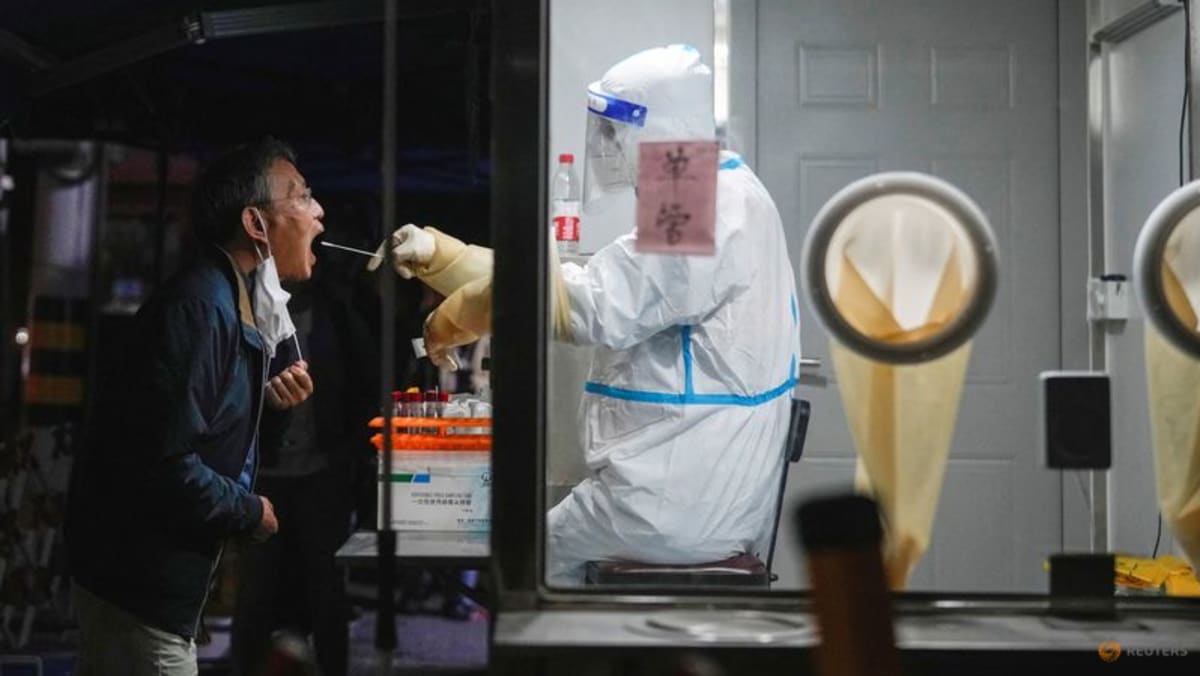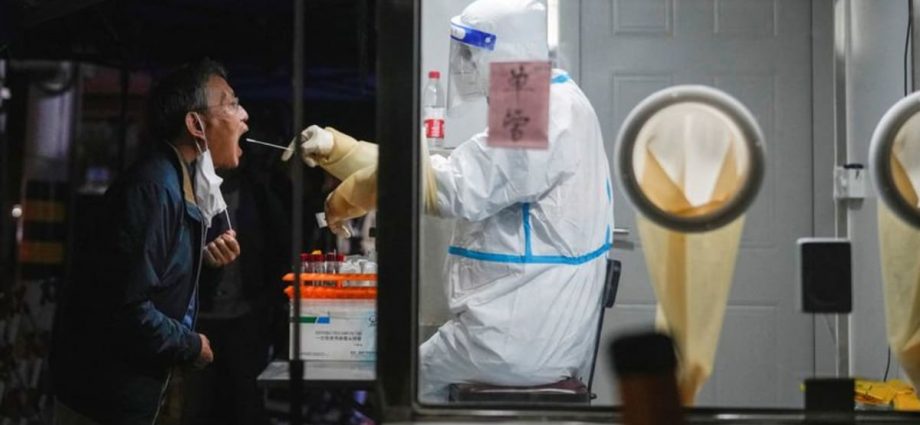
Wuhan, site of the world’s first COVID-19 outbreak in late 2019, reported around 20 to 25 new infections a day this week. Nevertheless, local authorities ordered more than 800,000 people in one district to stay at home until Oct 30.
“It’s already the third year and things are still like this,” Wuhan resident Joy Dai, who works in the tourism sector, told Reuters.
“It affects me both mentally and physically … But I’m helpless in all of this so I’ve learned to accept it.”
Wuhan Union Hospital suspended outpatient services after a member of staff at a canteen tested positive, the hospital said in a release. Universities in Wuhan also reverted to online teaching.
Wuhan also suspended the sale of pork in parts of the city, according to images and posts on social media, after one COVID-19 case was found that authorities said was linked to the local pork supply chain.
In Xining, the capital of Qinghai province, social media posts told of food shortages and price inflation for essential goods as health authorities in the city of 2.5 million people raced to contain a COVID-19 rebound following the week-long National Day holiday in early October.
“To reduce the risk of transmission, some vegetable and fruit stores have been closed and put under quarantine,” said a Xining government official on Wednesday.
Other large cities across China including Zhengzhou, Datong and Xian have implemented new curbs this week to rein in local outbreaks.
In Beijing, the Universal Resort theme park was shut on Wednesday after at least one visitor tested positive for the coronavirus. The theme park did not indicate when it would reopen but said it would refund or reschedule tickets.

